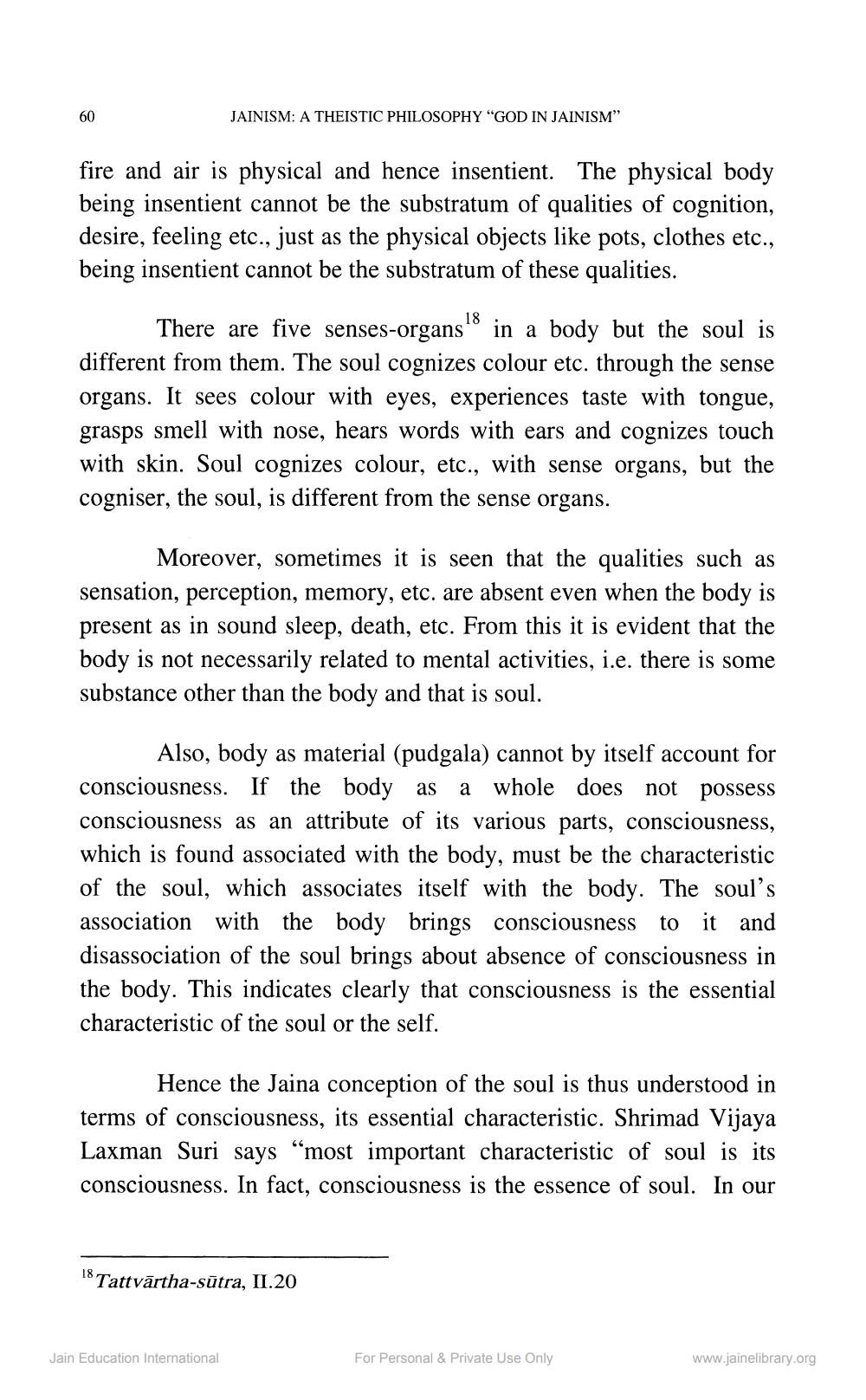________________
JAINISM: A THEISTIC PHILOSOPHY "GOD IN JAINISM”
fire and air is physical and hence insentient. The physical body being insentient cannot be the substratum of qualities of cognition, desire, feeling etc., just as the physical objects like pots, clothes etc., being insentient cannot be the substratum of these qualities.
There are five senses-organs! in a body but the soul is different from them. The soul cognizes colour etc. through the sense organs. It sees colour with eyes, experiences taste with tongue, grasps smell with nose, hears words with ears and cognizes touch with skin. Soul cognizes colour, etc., with sense organs, but the cogniser, the soul, is different from the sense organs.
Moreover, sometimes it is seen that the qualities such as sensation, perception, memory, etc. are absent even when the body is present as in sound sleep, death, etc. From this it is evident that the body is not necessarily related to mental activities, i.e. there is some substance other than the body and that is soul.
Also, body as material (pudgala) cannot by itself account for consciousness. If the body as a whole does not possess consciousness as an attribute of its various parts, consciousness, which is found associated with the body, must be the characteristic of the soul, which associates itself with the body. The soul's association with the body brings consciousness to it and disassociation of the soul brings about absence of consciousness in the body. This indicates clearly that consciousness is the essential characteristic of the soul or the self.
Hence the Jaina conception of the soul is thus understood in terms of consciousness, its essential characteristic. Shrimad Vijaya Laxman Suri says “most important characteristic of soul is its consciousness. In fact, consciousness is the essence of soul. In our
18 Tattvārtha-sūtra, II.20
Jain Education International
For Personal & Private Use Only
www.jainelibrary.org




